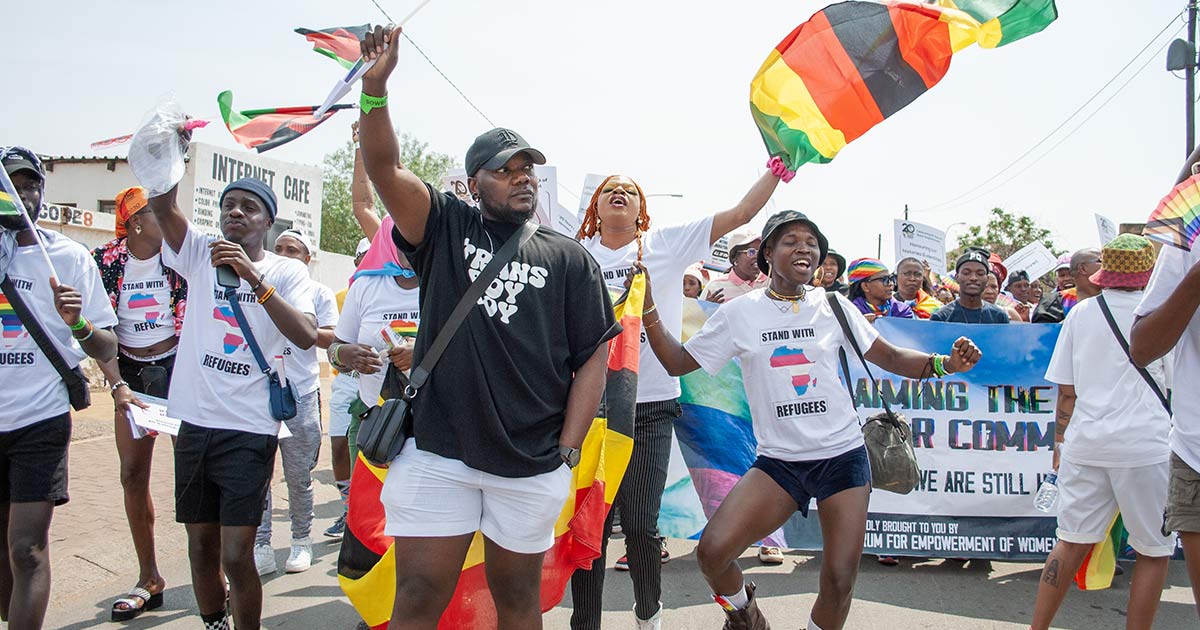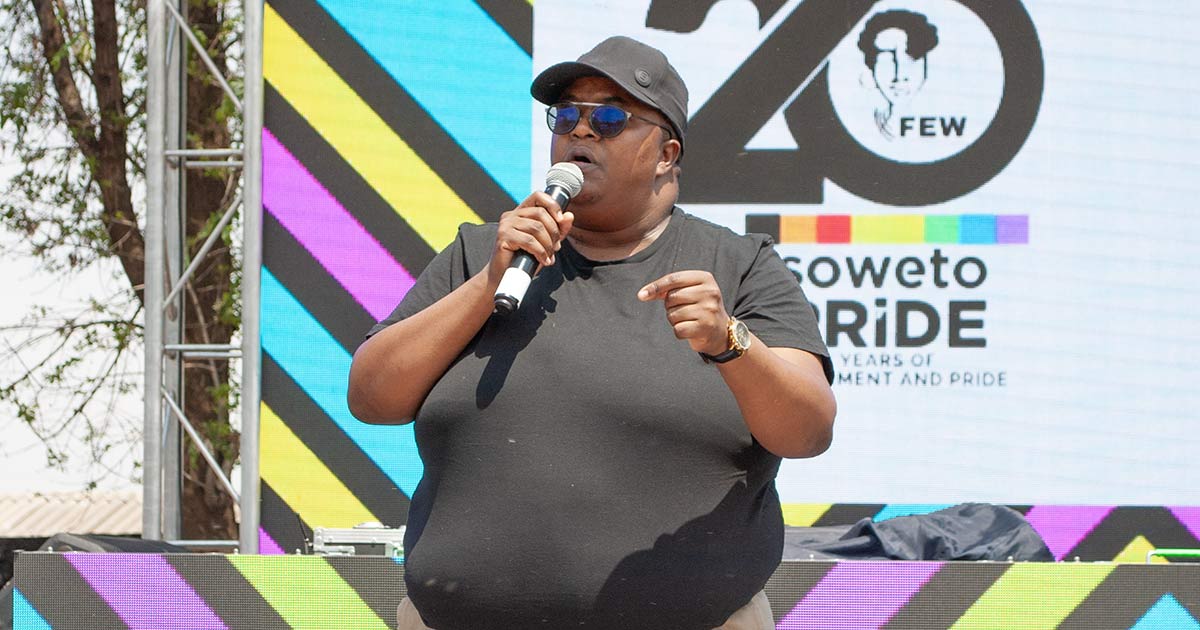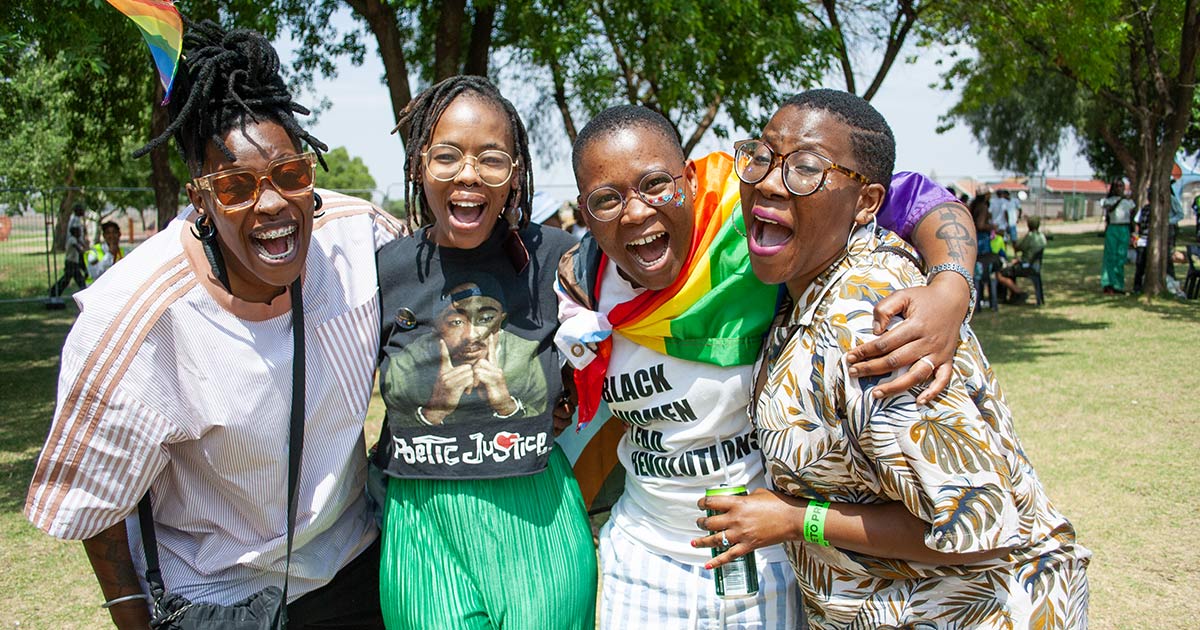Soweto Pride Marks 20 Years Amidst Surge in LGBTIQ+ Murders

Soweto Pride marked a vibrant and significant milestone as it celebrated its 20th edition on Saturday, 28 September, at the Dorothy Nyembe Park in Dobsonville.
With a day packed full of joy, protest, and reflection, the event once again demonstrated why it remains an essential platform for the LGBTIQ+ community in South Africa.
Since its humble beginnings in 2004, Soweto Pride has grown into a defiant beacon of queer liberation, empowerment, and visibility, especially for lesbian, bisexual, and queer (LBQ) women.
Organised by FEW (Forum for the Empowerment of Women), the event not only celebrates the diversity of queer identities but also continues to challenge the deep-rooted prejudices and violence faced by the community.
Reflecting on the 20th anniversary, Jade Madingwane, Director of FEW, called the occasion a “huge milestone” for the organisation.
“A lot of people in African communities say that being queer is unAfrican,” said Madingwane. “By celebrating Soweto Pride during Heritage Month, we are saying that we are both queer and African. This is the message we want to send: we exist, and we belong.”
Madingwane also highlighted the importance of continuing Pride events in the face of growing anti-gender movements across South Africa and the continent. “We must raise awareness about the existence and diversity of LGBTIQ+ people, especially when others in different countries can’t celebrate Pride the way we can here.”

LGBTIQ+ refugees from across the continent made their voices heard at Soweto Pride (Photos: MambaOnline / Luiz De Barros)
The day began with a lively and defiant march through the streets of Soweto. Marchers donned colourful rainbow attire, waved flags, and chanted slogans affirming their right to equality and dignity. Placards proclaimed: “Stop the war on women’s bodies,” “Justice delayed is justice denied,” and “We are LGBTQIA and we are alive.”
Among the marchers were parents and family members from Parents, Families & Friends of South African Queers (PFSAQ), proudly standing in solidarity with their queer children and advocating for more inclusive and affirming homes. The parade also saw a strong contingent of diplomats from Argentina, various European countries, New Zealand, and the United States, joining the march in a show of international support.
LGBTIQ+ refugees hailing from Uganda, Kenya, Nigeria, and Zimbabwe, and representing the Fruit Basket organisation, also joined the procession, proudly waving their national flags and standing in solidarity with their fellow queer Africans, many of whom still face persecution.
Back at the park, Soweto Pride continued with a lively festival atmosphere, featuring community stalls and food vendors.
Representatives from the European Union, long-standing supporters of the event, took to the stage to reaffirm their commitment to a South Africa free from discrimination and hate.
Steve Letsike, the out and proud Deputy Minister of Women, Youth and Persons with Disabilities, also participated in the march and addressed the crowd. She condemned the recent spate of LGBTIQ+ murders, which has seen more than 13 individuals killed in suspected hate crimes this year, particularly in the Eastern Cape.

The Deputy Minister of Women, Youth and Persons with Disabilities, Steve Letsike, spoke out against anti-queer violence and hate (Photos: MambaOnline / Luiz De Barros)
Speaking to MambaOnline, Letsike stressed the need for events like Soweto Pride. “We still face serious violence against LGBTIQ persons, particularly black lesbian women. Soweto Pride embodies and celebrates the existence of the queer community, while also highlighting the social ills rooted in our country. We’ve made progress, but we need to focus on truly thriving as a queer community.”
She also acknowledged the plight of LGBTIQ+ refugees in South Africa, many of whom struggle to secure legal recognition, and said that the government must do more.
“It’s really something that we shouldn’t be proud of. There is a backlog, and we need to fast-track this process. No one should be without identity or legitimate documents that allow them to access essential services like healthcare, education, and the financial sector,” said Letsike.
As the sun set on Soweto Pride 2024, the energy and spirit of the event echoed loud and clear: queer visibility, resistance, and solidarity are more important than ever. The event closed with performances from DJs and entertainers, ensuring that the celebrations carried on well into the evening.

Soweto Pride not only championed equality and safety, but also provided a vibrant space for community connection and celebration. (Photos: MambaOnline / Luiz De Barros)
Leave a Reply